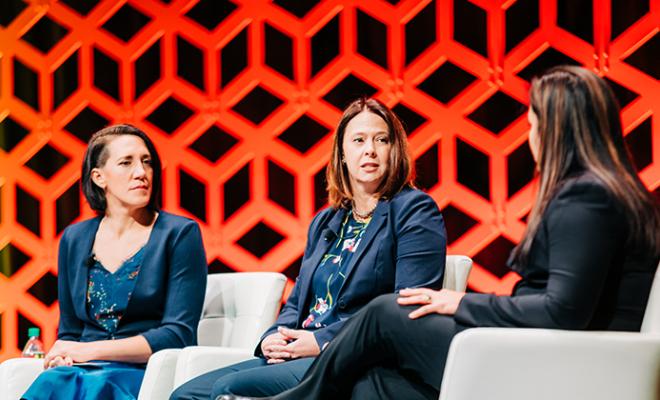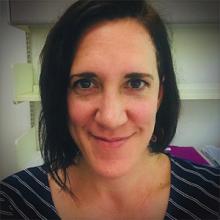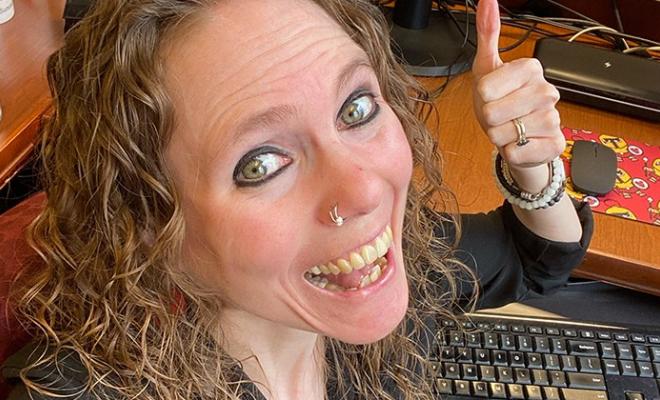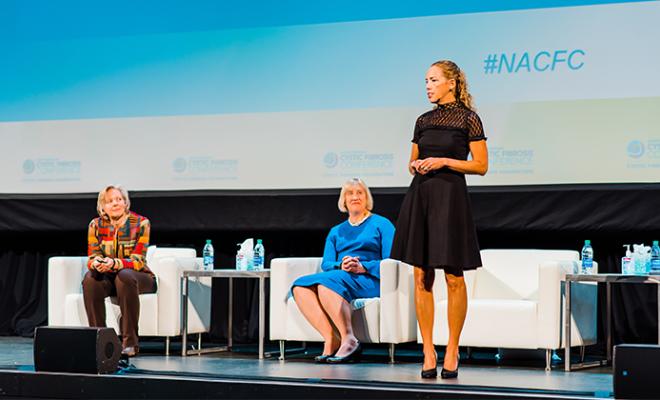“This isn't a story of a medical miracle” appeared on the screen, kicking off the third plenary at this year's North American Cystic Fibrosis Conference. This is our story. And, as an adult CF nurse coordinator, it is a story that I am proud to help write.
At the plenary, Dr. Peter Mogayzel led us through our past challenges and how we've met them to bring about the decades of progress we now see. This has always been with the people with CF and their families alongside of us.
Our story started with CF as a fatal, childhood disease, affecting multiple organ systems. There were no treatments, and no care centers. We met this challenge with the help of Dr. LeRoy Matthews and colleagues who developed an approach to not only treat infections, but to include prevention.
Amanda Leonard, a dietician, had the idea to recruit seasoned clinicians to train new ones in their specialties. This single idea has led to 350 mentors training more than 800 clinicians in multidisciplinary teams. These teams form a network of accredited care centers that now serve people with CF all across the country.
With early treatments and care practices, we needed to know if this care actually worked. A team, led by Dr. Carl Doershuk, figured out that by measuring what we do, we can improve. We learned that when CF is diagnosed and treated early, we could slow the disease progression. Thus began the need to test for CF in newborns. Thanks to Dr. Phil Farrell and others, the majority of people with CF in the U.S. and some around the world, are now diagnosed, starting with a newborn screening.
Against these challenges, we've made incredible progress. Most recently adding Trikafta™, the latest weapon in our arsenal against this disease. And, with the promise of a brighter future for many, comes new questions as many more grow older with CF, facing challenges we've yet to imagine. As one 60-year-old noted in a video during the presentation, we don't know what CF medications might do to a “geriatric body.”
We discussed these challenges as a panel, where I was joined by Dr. Cindy Brown and Dr. Terri Laguna. The ones that struck me the most were:
- Non-Caucasians often have rare, genetic mutations that don't respond to modulators, making them feel invisible. So with the Foundation's Path to a Cure, we as clinicians also have to let our patients know that we see them and we're going to stay with them.
- Many with CF have to choose between priorities like food or medication. These problems seem overwhelming, but seeing how innovative we've been, I have hope that we can find new ways to make care more accessible, like using technology and partnering with community health workers to make care more affordable.
- Mental health and well-being are key considerations in optimizing the health of everyone we care for. It should be assessed, even at a newborn visit, remembering that families may have significant anxiety walking into a CF visit the very first time, especially if they learn that his or her baby doesn't have a mutation that will respond to a current modulator. So in addition to the mental health grants, we must continue to advocate at our institutions, care centers, communities, and local, state, and federal government to make sure that treatment, including for mental health, is affordable and accessible.
- Some with CF will still face advanced lung disease, and some have already had a transplant, so we need to keep learning to reduce chronic rejection and develop therapies and practices as the disease gets more complex.
- Building meaningful partnerships with our patients and their families will increasingly become more critical if we are to learn about them, and more importantly, what their individual goals are. This is why I'm so proud that there are always patients and families on committees, including the CF Learning Network, to improve care.
As a community, we have a long history of bringing about the medical evidence and practices that make up specialized CF care. It is this track record that gives us the confidence, knowing that together, we can write the next chapter in CF care as one of even greater innovation and impact to meet the challenges ahead.
If you weren't able to see the plenary session live, you can watch it below.





